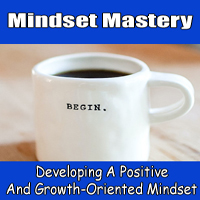


Unmasking Self-Doubt

The impostor phenomenon, often referred to as impostor syndrome, is a psychological pattern of self-doubt and a persistent fear of being exposed as a fraud, despite evidence of competence and accomplishments. Coined by psychologists Dr. Pauline Clance and Dr. Suzanne Imes in the 1970s, this phenomenon has since been recognized as a common experience among high-achievers in various fields. In this article, we explore the impostor phenomenon, its origins, manifestations, and strategies for overcoming it.
Understanding The Impostor Phenomenon
The impostor phenomenon is characterized by a pervasive feeling of inadequacy and the belief that one's achievements are merely a result of luck, timing, or the ability to deceive others. Those experiencing the impostor phenomenon often attribute their success to external factors while internalizing their failures, leading to self-doubt and negative self-talk. Despite external validation, individuals with the impostor phenomenon feel like they are undeserving of their accomplishments.
Origins Of The Impostor Phenomenon
The origins of the impostor phenomenon can often be traced back to childhood experiences and early upbringing. These experiences may include overly critical parents, high expectations from caregivers, or instances of perfectionism. Educational environments, where students often face competition and rigorous standards, can also contribute to the development of the impostor phenomenon.
Manifestations Of The Impostor Phenomenon
The impostor phenomenon can manifest in various ways, including:
Perfectionism: Setting unrealistic standards for oneself and striving for unattainable perfection.
Self-Criticism: Engaging in negative self-talk and focusing on perceived failures or shortcomings.
Avoidance Of Challenges: Preferring to remain within one's comfort zone and avoiding situations that may expose one's perceived inadequacies.
Procrastination: Delaying tasks or decisions out of fear of failure.
Attributing Success To External Factors: Believing that any success is a result of external factors such as luck, timing, or the actions of others.
Difficulty In Accepting Praise: Feeling uncomfortable or undeserving of recognition for one's accomplishments.
Strategies For Overcoming The Impostor Phenomenon
Overcoming the impostor phenomenon is an ongoing journey that requires self-awareness and personal growth. Here are some strategies to help individuals unmask and conquer this self-doubt:
Recognize And Acknowledge It: The first step is to acknowledge that you are experiencing the impostor phenomenon. Understand that you are not alone in your self-doubt.
Challenge Negative Self-Talk: Actively challenge and reframe self-critical thoughts by focusing on your achievements and strengths.
Set Realistic Goals: Set attainable goals and embrace the idea that setbacks are part of the learning process.
Seek Support: Share your feelings with trusted friends, mentors, or professionals who can provide guidance and support.
Practice Self-Compassion: Be kind to yourself and understand that perfection is an unrealistic standard.
Visualize Success: Create a positive mental image of your accomplishments and use it to boost self-confidence.
The impostor phenomenon is a common experience among high-achievers, but it need not define one's path. Recognizing its presence and taking proactive steps to overcome self-doubt is the key to unmasking this self-imposed fraud. With self-awareness, self-compassion, and a commitment to personal growth, individuals can unlock their true potential and embrace their achievements with confidence. Remember, you are deserving of your successes, and the impostor phenomenon is a hurdle that can be conquered on your journey to personal and professional fulfillment.




 Understanding Mindset Mastery: At its core, mindset mastery is about gaining control over your thought processes and beliefs. It involves recognizing and challenging limiting beliefs, embracing a positive perspective, and adopting a growth-oriented mindset.
Understanding Mindset Mastery: At its core, mindset mastery is about gaining control over your thought processes and beliefs. It involves recognizing and challenging limiting beliefs, embracing a positive perspective, and adopting a growth-oriented mindset.
Overcoming Limiting Beliefs: The first step in mastering your mindset is identifying and dismantling limiting beliefs. These self-imposed barriers often hinder personal growth. By acknowledging and challenging these beliefs, you clear the path to fulfillment.
A Positive Perspective: A mindset geared toward personal fulfillment is inherently positive. Instead of dwelling on problems, it focuses on solutions. This positive perspective empowers you to view challenges as opportunities for growth and to maintain an optimistic outlook.
Resilience And Adaptability: Mindset mastery equips you with the resilience to bounce back from setbacks. Personal fulfillment is not devoid of obstacles, but a strong mindset helps you overcome them with grace and determination. You learn to adapt to change more readily.
Self-Discovery And Self-Awareness: Mindset mastery encourages self-discovery and self-awareness. By understanding your own values, strengths, and passions, you gain clarity on what truly fulfills you. This self-awareness becomes a guiding force in your journey.






 Positive Mindset: Mental strength is closely connected to maintaining a positive mindset, even when faced with setbacks. It's about focusing on solutions rather than dwelling on problems. This positive attitude not only alleviates stress but also attracts constructive outcomes.
Positive Mindset: Mental strength is closely connected to maintaining a positive mindset, even when faced with setbacks. It's about focusing on solutions rather than dwelling on problems. This positive attitude not only alleviates stress but also attracts constructive outcomes.
Resilience: Resilience is the hallmark of mental strength. When life throws curveballs, mentally strong individuals bounce back with determination. They understand that setbacks are part of the journey and do not let failures define them. Resilience keeps them moving forward.
Self-Confidence: Mental strength nurtures self-confidence. Believing in one's abilities and potential is pivotal to overcoming challenges. Self-assured individuals are more likely to tackle new opportunities, make decisions, and push their boundaries.
Stress Management: Mental strength equips individuals with the tools to manage stress effectively. Instead of succumbing to pressure, they develop coping mechanisms that help them stay calm and composed under trying circumstances.
Adaptability: Mental strength enables adaptability. It allows individuals to adjust to changing situations, whether in personal or professional life. They are open to new ideas and possess the flexibility to adapt to unexpected turns of events.
Optimism: Maintaining optimism is a significant component of mental strength. It's about looking at the glass as half full rather than half empty. An optimistic outlook not only boosts self-esteem but also encourages others to adopt a positive attitude.
Focus And Determination: Mentally strong individuals are often highly focused and determined. They set clear goals and work tirelessly to achieve them. Distractions and self-doubt are minimal when mental strength is at its peak.
To cultivate and enhance mental strength, one can engage in various practices such as mindfulness, meditation, regular exercise, and setting achievable goals. Seeking support from mentors, therapists, or coaches can also aid in building and maintaining mental fortitude.
Empowering Your Journey To Self-Worth
 Root Causes Of Inadequacy
Root Causes Of Inadequacy
Inadequacy often has complex origins that may vary from person to person. Some common factors include:
Early Life Experiences: Childhood experiences, such as parental expectations or experiences of rejection, can significantly impact self-esteem and contribute to feelings of inadequacy.
Social Comparisons: Constantly measuring oneself against others and feeling inferior can be a potent source of inadequacy.
Perfectionism: Striving for an unrealistic standard of perfection can foster feelings of inadequacy when one inevitably falls short.
Failure And Rejection: Past experiences of failure, rejection, or criticism can perpetuate a sense of inadequacy.
Negative Self-Image: A distorted self-image, whether related to body image or self-worth, can exacerbate feelings of inadequacy.
Strategies For Overcoming Inadequacy
Overcoming inadequacy is a personal journey that demands self-awareness, patience, and self-compassion. Here are some strategies to help empower yourself on this journey:
Recognize And Acknowledge: The first step is recognizing your feelings of inadequacy and acknowledging them without judgment. Understand that many individuals experience these emotions.
Challenge Negative Self-Talk: Actively challenge self-critical thoughts and replace them with affirmations that emphasize your strengths and capabilities.
The Key To Overcoming Procrastination
 Understanding The Nature Of Procrastination: Procrastination is often a byproduct of our inclination to choose short-term comfort and instant gratification over the longer-term rewards of completing tasks. It is a habit that can lead to missed opportunities, stress, and unfulfilled potential. To overcome it, one must recognize the need for change and make a firm commitment to act upon it.
Understanding The Nature Of Procrastination: Procrastination is often a byproduct of our inclination to choose short-term comfort and instant gratification over the longer-term rewards of completing tasks. It is a habit that can lead to missed opportunities, stress, and unfulfilled potential. To overcome it, one must recognize the need for change and make a firm commitment to act upon it.
The Role Of Commitment: Commitment to change is the foundation of progress. It is a pledge to oneself to break free from the cycle of procrastination and prioritize tasks effectively. By making this commitment, you empower yourself to take control of your time, set meaningful goals, and turn your aspirations into reality.
Strategies For Embracing Commitment And Overcoming Procrastination:
Set Clear Goals: Commitment to change begins with setting clear, specific, and motivating goals.
Embracing Introvert Advantages
 Deep Thinking And Creativity: Introverts are known for their introspective nature and their ability to think deeply. They tend to ponder complex issues, leading to creative and innovative solutions. In the solitude of their own minds, introverts can generate groundbreaking ideas, making them invaluable assets in fields that require innovation and problem-solving.
Deep Thinking And Creativity: Introverts are known for their introspective nature and their ability to think deeply. They tend to ponder complex issues, leading to creative and innovative solutions. In the solitude of their own minds, introverts can generate groundbreaking ideas, making them invaluable assets in fields that require innovation and problem-solving.
Excellent Listeners: Introverts are exceptional listeners. They pay close attention to what others are saying, which not only strengthens their relationships but also makes them great communicators. This skill is highly advantageous in professional and personal settings, as it fosters effective communication and fosters empathy.
Independent And Self-Sufficient: Introverts are often self-reliant, making them capable of working autonomously. They can complete tasks with minimal supervision, making them dependable and efficient employees. This self-sufficiency is a remarkable trait that often leads to success in various careers.
Strong Focus: Introverts have an innate ability to maintain focus, a crucial skill in a world filled with distractions. They can work for extended periods without getting sidetracked, resulting in greater productivity and high-quality work. This quality makes them excellent in tasks that require meticulous attention to detail.
Empathy And Compassion: Introverts tend to be highly empathetic, making them sensitive to the needs and feelings of others. They can offer genuine support and understanding, fostering deep and meaningful relationships. This quality is not only beneficial in personal life but also in careers like counseling, social work, or any profession that involves working closely with people.